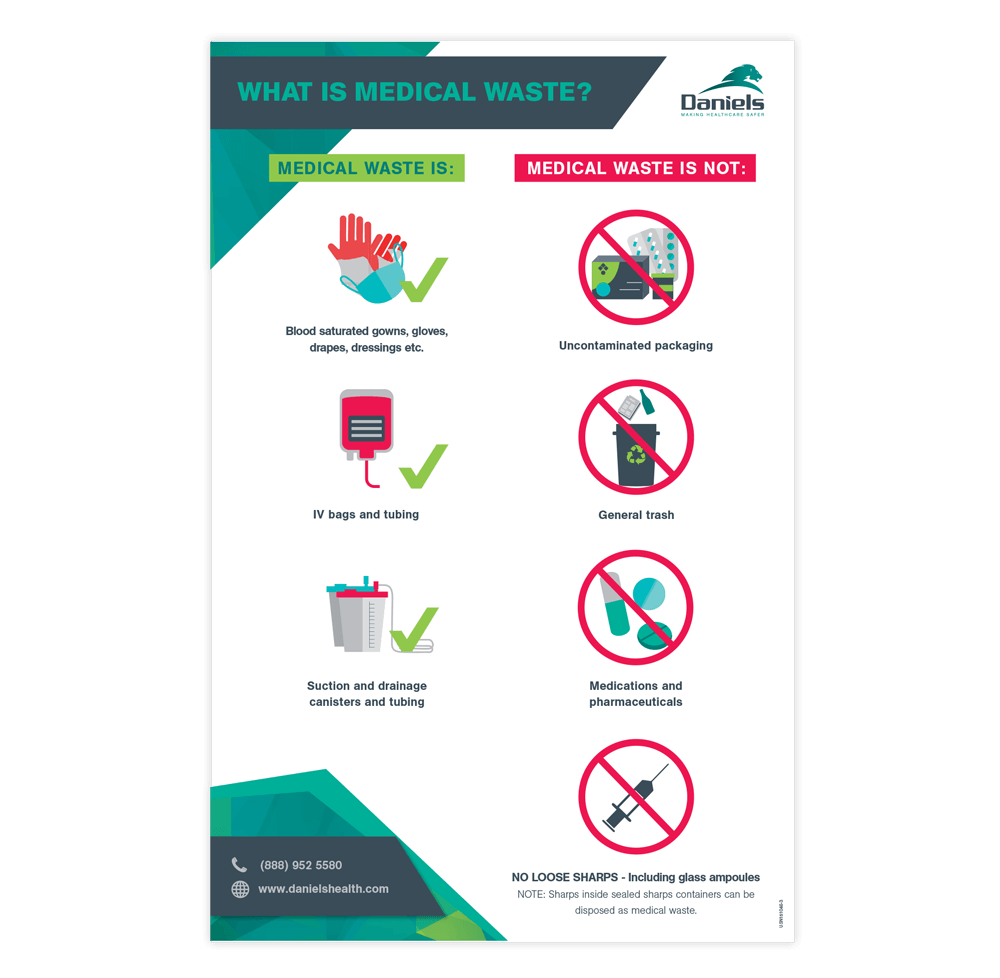Reliable Medical Waste Disposal Services: Partnering for a Cleaner Environment
Reliable Medical Waste Disposal Services: Partnering for a Cleaner Environment
Blog Article
Navigating Medical Waste Disposal: Crucial Services for Healthcare Facilities
In the detailed landscape of health care procedures, the monitoring of medical waste is a vital element that requires meticulous focus. Health care centers, whether small clinics or large medical facilities, are left with the obligation of handling, treating, and taking care of a vast array of clinical waste streams. The intricacies associated with browsing via the regulatory demands, making sure proper waste partition, and implementing secure collection and transport processes are paramount. Comprehending the essential solutions that sustain clinical garbage disposal is not simply an issue of compliance but likewise an essential element in protecting public health and ecological health. The complexities of this process are essential for healthcare facilities, and the knowledge used in this realm plays a pivotal duty in maintaining the integrity of medical care systems.
Regulatory Compliance Assistance
For health care centers, making certain governing compliance support is crucial to maintain correct handling and disposal of clinical waste. By partnering with regulatory conformity professionals, health care facilities can remain updated on progressing regulations, minimize threats connected with improper waste disposal, and ultimately contribute to a more secure and a lot more sustainable environment for all.
Waste Partition Advice
Health care centers must provide clear guidelines and training to staff on how to segregate waste properly. This consists of dividing basic waste from unsafe materials such as sharps, transmittable waste, drugs, and chemical waste.
Collection and Transport Solutions

Correct collection and transport services are important elements of the medical waste disposal procedure in health care facilities. These services make certain that harmful materials are handled safely and in conformity with laws to secure both the environment and public health and wellness. Health care facilities depend on specialized waste management firms to give reliable collection and transportation solutions tailored to their requirements.
Medical waste collection involves setting apart different sorts of waste at the factor of generation, utilizing color-coded bins or bags to distinguish in between general, harmful, pharmaceutical, and other waste streams. Educated workers have to perform this job to stop contamination and guarantee correct disposal. Once accumulated, the waste is delivered in dedicated lorries equipped to handle hazardous products safely. These automobiles stick to strict safety criteria and follow assigned courses to accredited treatment centers for disposal through techniques such as sanitation, landfilling, or incineration.
Therapy and Disposal Solutions
In the world of clinical waste disposal for health care facilities, after the important stage of collection and transportation services, the emphasis moves towards applying reliable therapy and disposal solutions. Therapy options often include processes such as Click This Link autoclaving, which makes use of heavy steam under pressure to sanitize the waste.
Disposal services incorporate the final step in the medical waste administration procedure. Recycling and source recovery are likewise gaining traction as lasting disposal options for particular types of medical waste products.
Effective therapy and disposal remedies are extremely important in making certain compliance with policies and securing public wellness and the environment. Health care centers have to carefully examine and pick ideal methods that line up with their waste administration goals and sustainability campaigns.
Team Training and Education

To effectively manage medical waste disposal in medical care facilities, extensive staff training and education play an important role in guaranteeing adherence to governing requirements and maintaining a safe atmosphere. Proper training gears up staff with the expertise and skills needed to handle various kinds of medical waste, segregate them properly, and package them securely for disposal. By informing employees on the threats associated with improper handling of clinical waste, facilities can lower the likelihood of crashes, contamination, and regulatory offenses.

Final Thought
In final thought, health care centers count on necessary medical waste disposal services to guarantee regulative conformity, appropriate waste segregation, risk-free collection and transport, reliable treatment and disposal, as well as staff training and education. These solutions play a vital duty in preserving the wellness and safety and security of both medical care employees and the public, highlighting the importance of proper management of clinical waste in medical care setups.
For healthcare facilities, guaranteeing regulative compliance support is necessary to maintain proper handling and disposal of medical waste. Waste partition entails classifying various types of medical waste to ensure ideal handling, therapy, and disposal. This consists of dividing general waste from dangerous materials such as sharps, infectious waste, drugs, and chemical waste.Medical waste collection involves segregating different types of waste at the factor of generation, utilizing color-coded bins or bags to identify between basic, harmful, pharmaceutical, and other waste streams.In the world of medical waste disposal check over here for healthcare facilities, after the vital stage of collection and transport services, the focus changes in the direction of carrying out effective therapy and disposal services.
Report this page